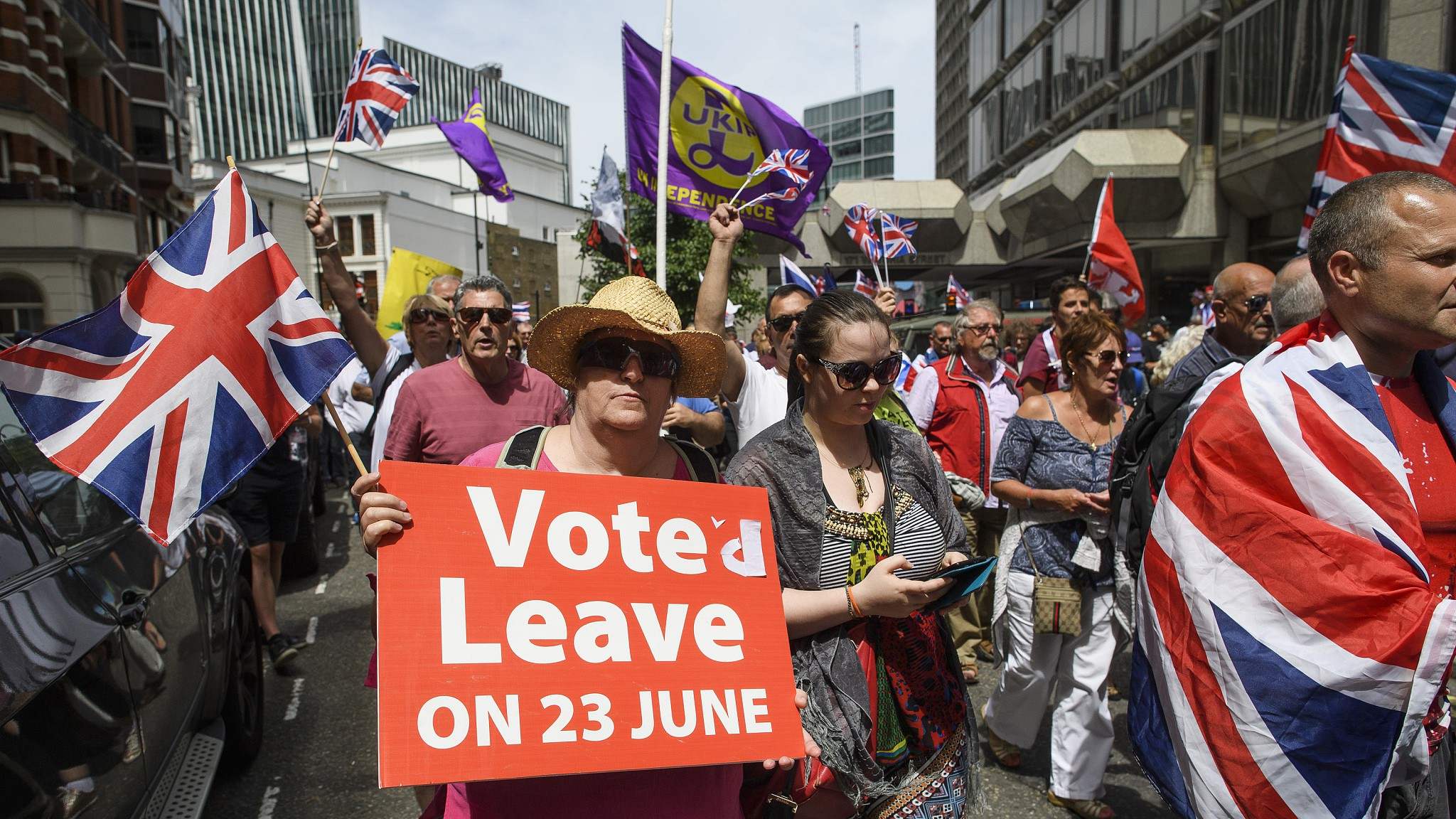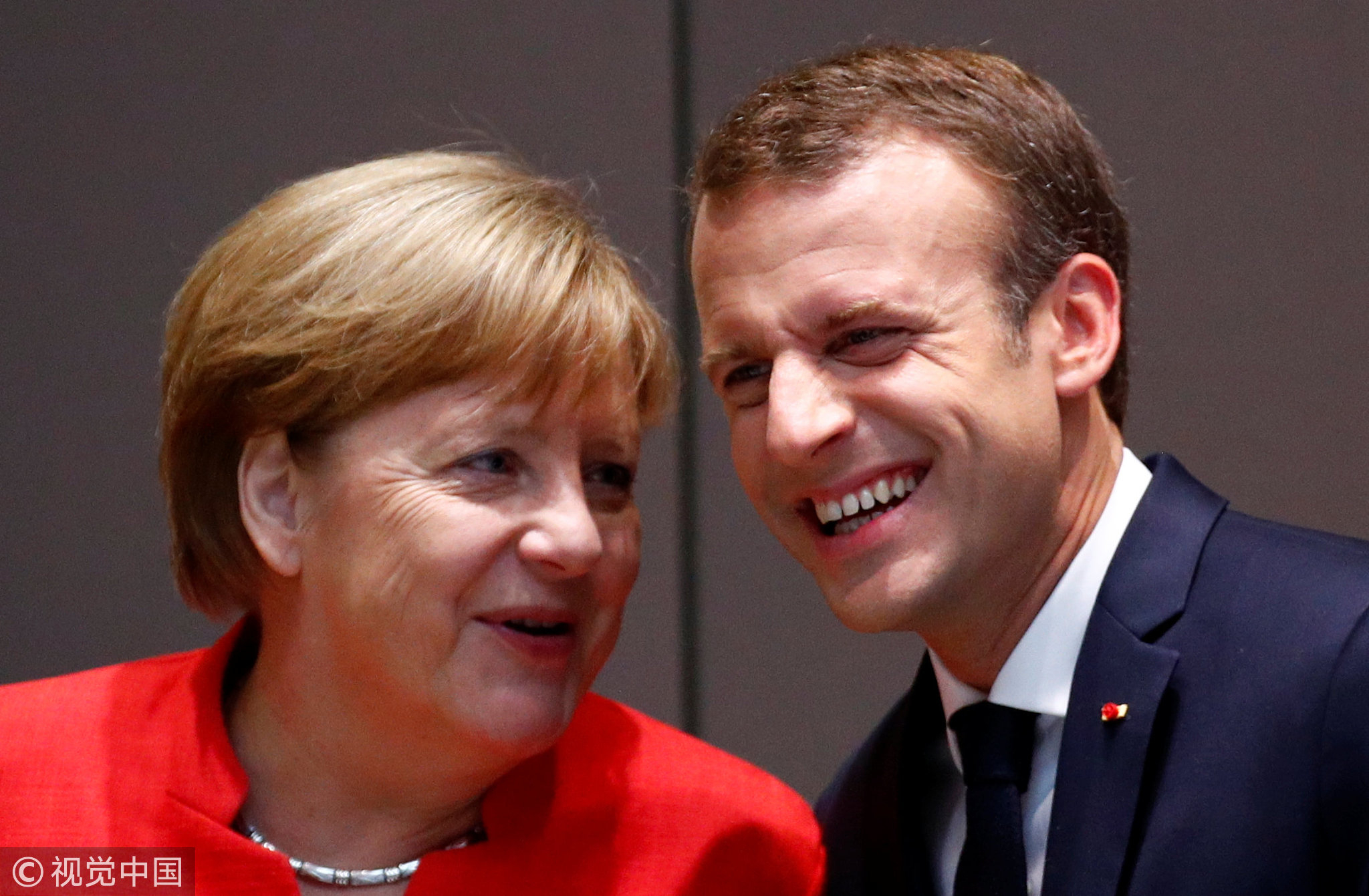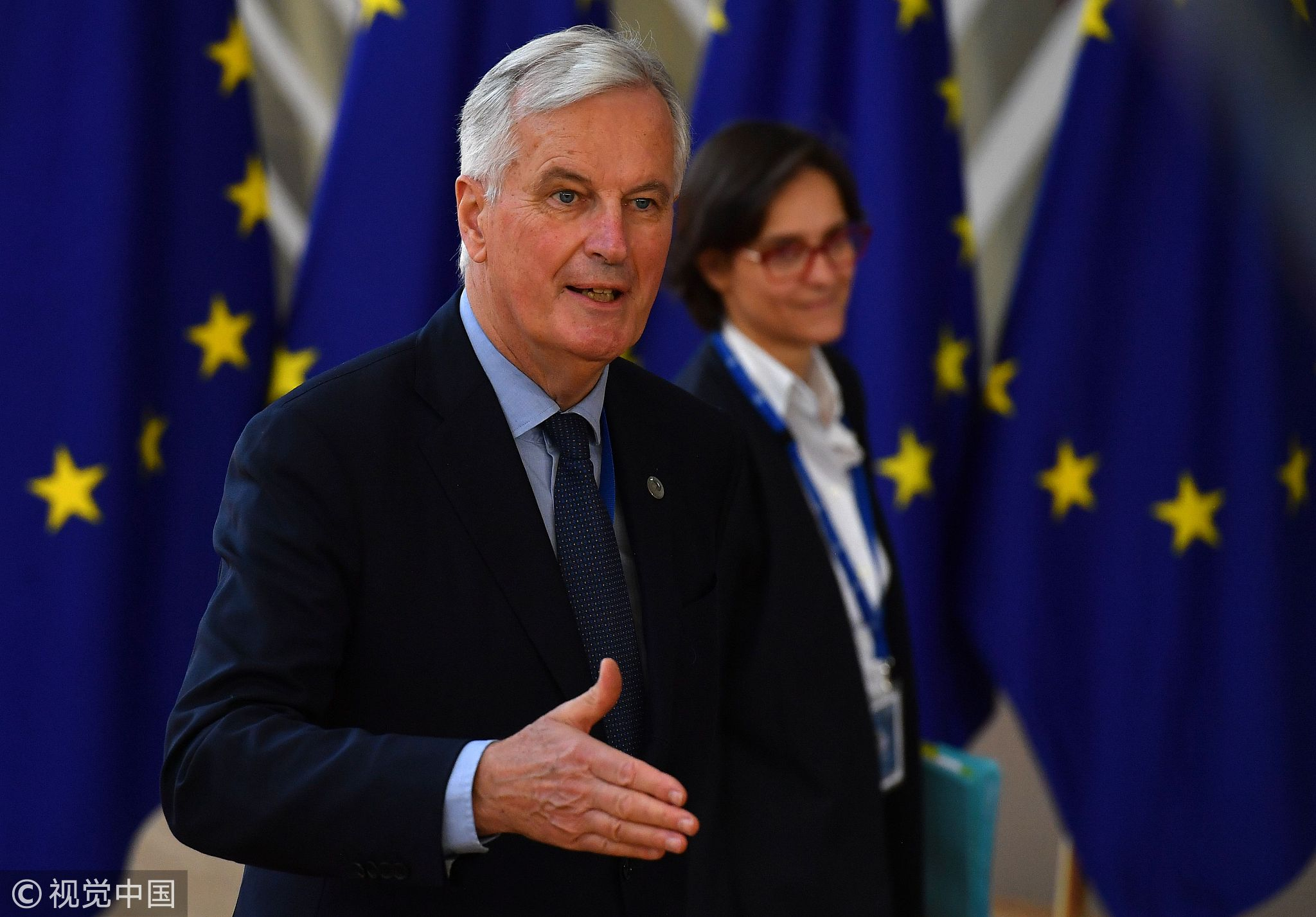
Opinions
09:41, 30-Jun-2018
Opinion: Does the EU care about Brexit?
Updated
09:18, 03-Jul-2018
Dr Simon Usherwood

Editor's note: Dr. Simon Usherwood is a deputy director of The UK in a Changing Europe an independent, impartial academic think tank on Brexit. He’s also Reader in Politics at the University of Surrey. The article reflects the author's opinion, and not necessarily the views of CGTN.
The European Council on Thursday and Friday was notable for several reasons, from Angela Merkel's concerns to figuring out how to represent each nation's football team. However, one of the things the summit didn’t really have a lot to say about was Brexit.
If the past three years have been marked by a very prominent and impassioned debate in the UK about the merits of being in or out of the European Union, then that has not been matched across the Channel.
From surprise and disappointment in the wake of the 2016 referendum, to frustration and confusion over the subsequent negotiations to leave, the EU has long presented a much more ambivalent face to the issue than that found in London.
All of which raises the question of whether the EU is actually that bothered by it all.
Other fish to fry
A big part of that impression is simply that there’s a lot of other pressing topics on the EU’s plate right now.
The continuing domestic fights over immigration policy both within member states – most notably Germany – and between them – contrast the liberal policy in Sweden with the barriers in Hungary – has been a feature of EU political debate for several years now. The inability to find solutions to address the needs of all of those states and the needs of migrants reflects on some very deep divisions over the values and priorities that Europe should hold closest.

German Chancellor Angela Merkel shares a laugh with French President Emmanuel Macron as they arrive at a European Union leaders summit in Brussels, Belgium on June 29, 2018./VCG Photo
German Chancellor Angela Merkel shares a laugh with French President Emmanuel Macron as they arrive at a European Union leaders summit in Brussels, Belgium on June 29, 2018./VCG Photo
If immigration has driven wedges between states, then the deterioration in relations with both Russia and the United States has perhaps pushed them together. The threat to the stability of the EU’s neighborhood and strategic partnership has been a major headache, to which there is no simple remedy.
And loitering in the background is the continued concern over the functioning of the Eurozone, which may have pulled itself out of the great recession, but which still contains major issues around its governance and its capacity to deal with future downturns.
What ties all these issues together is that they are urgent, systemic and without easy answers: they matter to the economy and security of every member state.
By contrast, Brexit looks very manageable.
There’s a defined process of sorts in Article 50; the costs look to be much more on the UK than the EU; and, importantly, it’s an issue that is heading away from the EU, rather than coming towards it.
With that in mind, the EU might not be unreasonable in feeling that this is one thing they have covered, so they don’t need to spend much time on it.
A fish with teeth
However, despite this wider context, the lack of debate at the European Council doesn’t really mean Brexit isn’t worth the effort.
Instead, it is more accurately a reflection of how the EU has decided to manage this issue.
Central in that management has been a strong effort to maintain a united front to the UK. As a result, negotiations have been handled almost exclusively by the commission task force headed by Michel Barnier.

Brexit Chief Negotiator Michel Barnier gestures as he walks at The Europa building in Brussels on Jun 29, 2018./VCG Photo
Brexit Chief Negotiator Michel Barnier gestures as he walks at The Europa building in Brussels on Jun 29, 2018./VCG Photo
Even when discussion has dealt with country-specific issues such as the Irish dimension, the approach has been to use this framework, both to keep all member states closely involved and to avoid British efforts to create splits within the EU.
One upshot of this has been to see Brexit drop very much off the agenda at European Councils, which have become little more than reporting points for the commission to national leaders.
The strategic planning of a goldfish?
But perhaps the most pressing reason for not seeing much about Brexit right now is that there isn’t much to see.
Since early 2018, the British government has produced almost no concrete proposals on the issues on the table. The main exception – on customs arrangements – was rapidly picked apart by the EU, even as it was welcomed for being better than no proposal at all.
Put simply, the EU finds itself waiting on the UK to move negotiations forward.
The original timeline for leaving foresaw a full agreement being signed in October, leaving time to ratify and implement it in time for the departure date of 29 March 2019.
As things stand in the wake of this European Council, that looks very ambitious. As the conclusions to the meeting noted, time is slipping away and the need to turn broad political intent into a legal text takes time. The encouraging words about being able to offer a better deal if the UK chooses to change its mind about its red lines reflect how open the British position still remains, after all this time.
The EU does and will continue to care about Brexit, but that does not change the basic requirement that the UK cares about it too.

SITEMAP
Copyright © 2018 CGTN. Beijing ICP prepared NO.16065310-3
Copyright © 2018 CGTN. Beijing ICP prepared NO.16065310-3